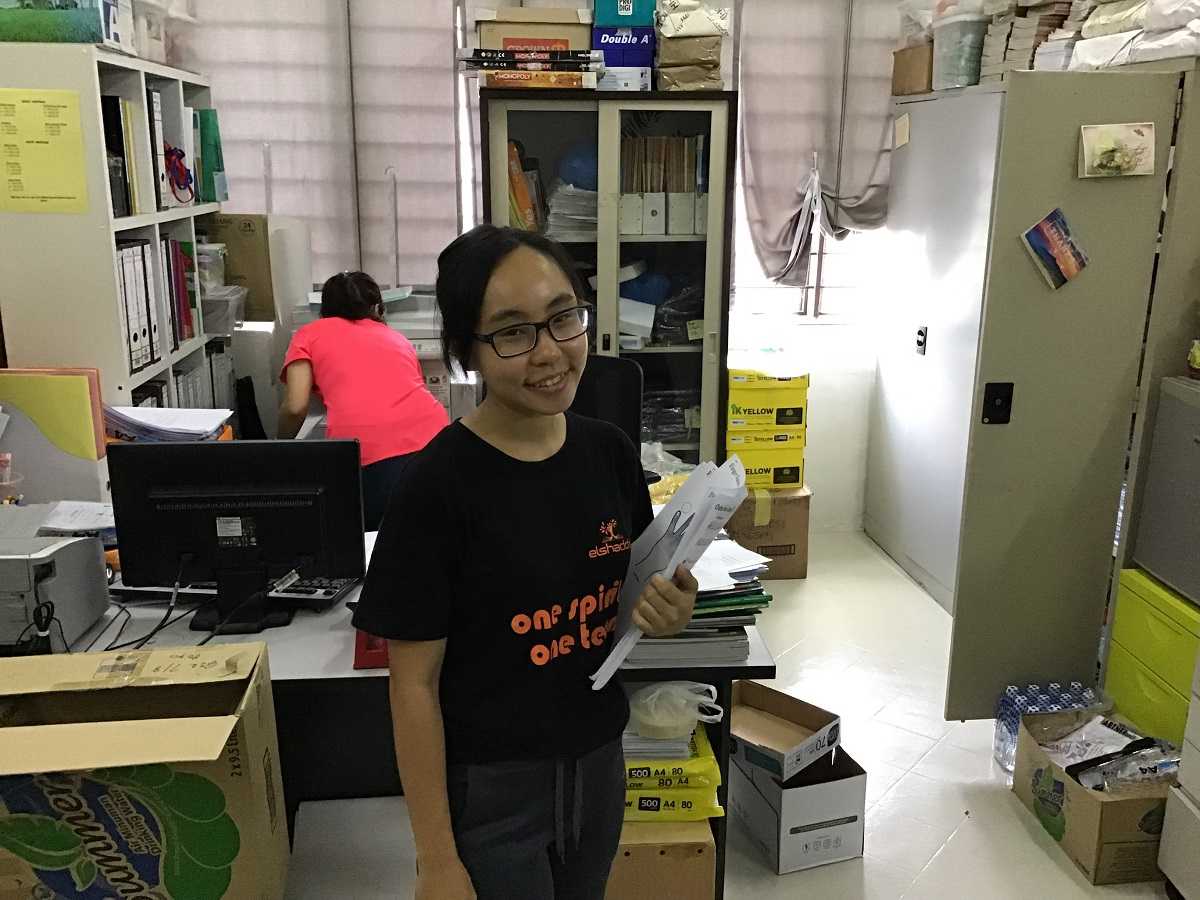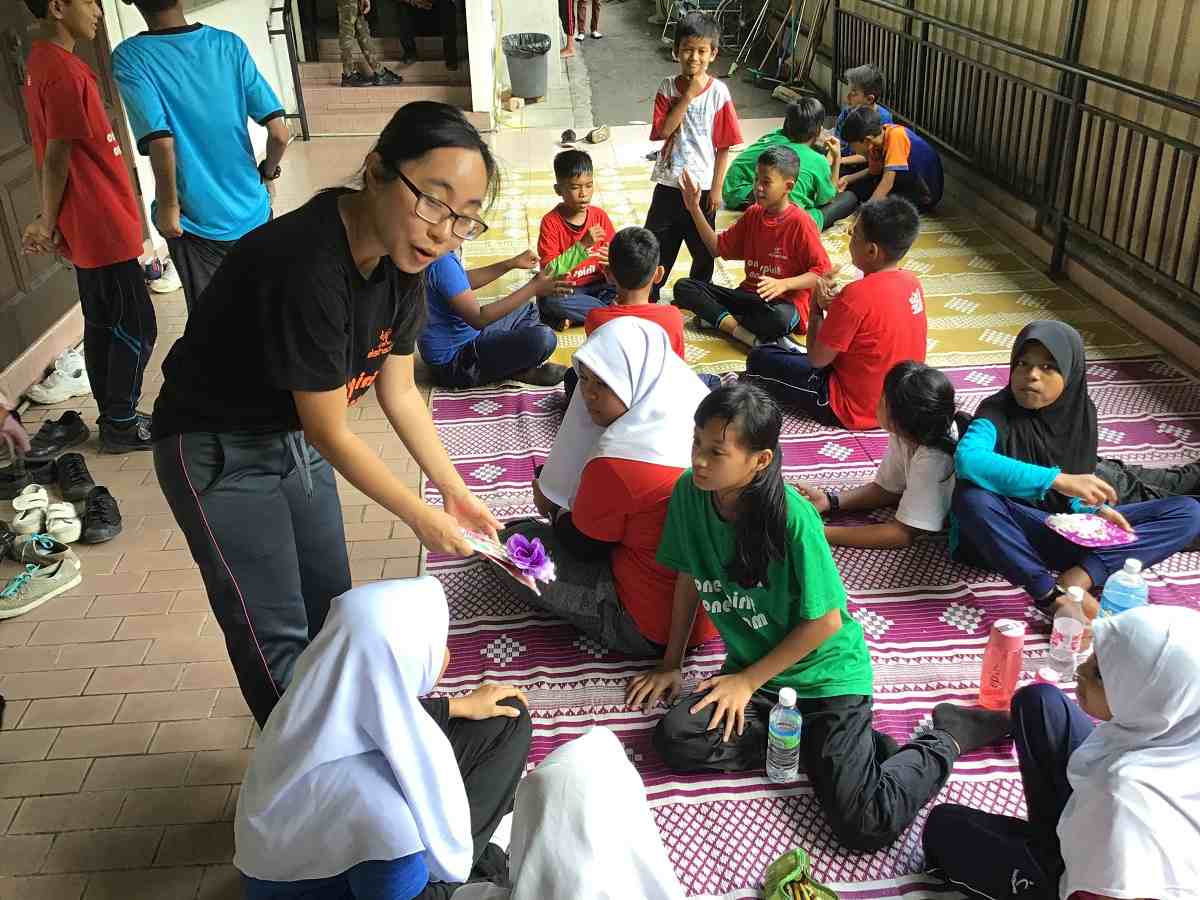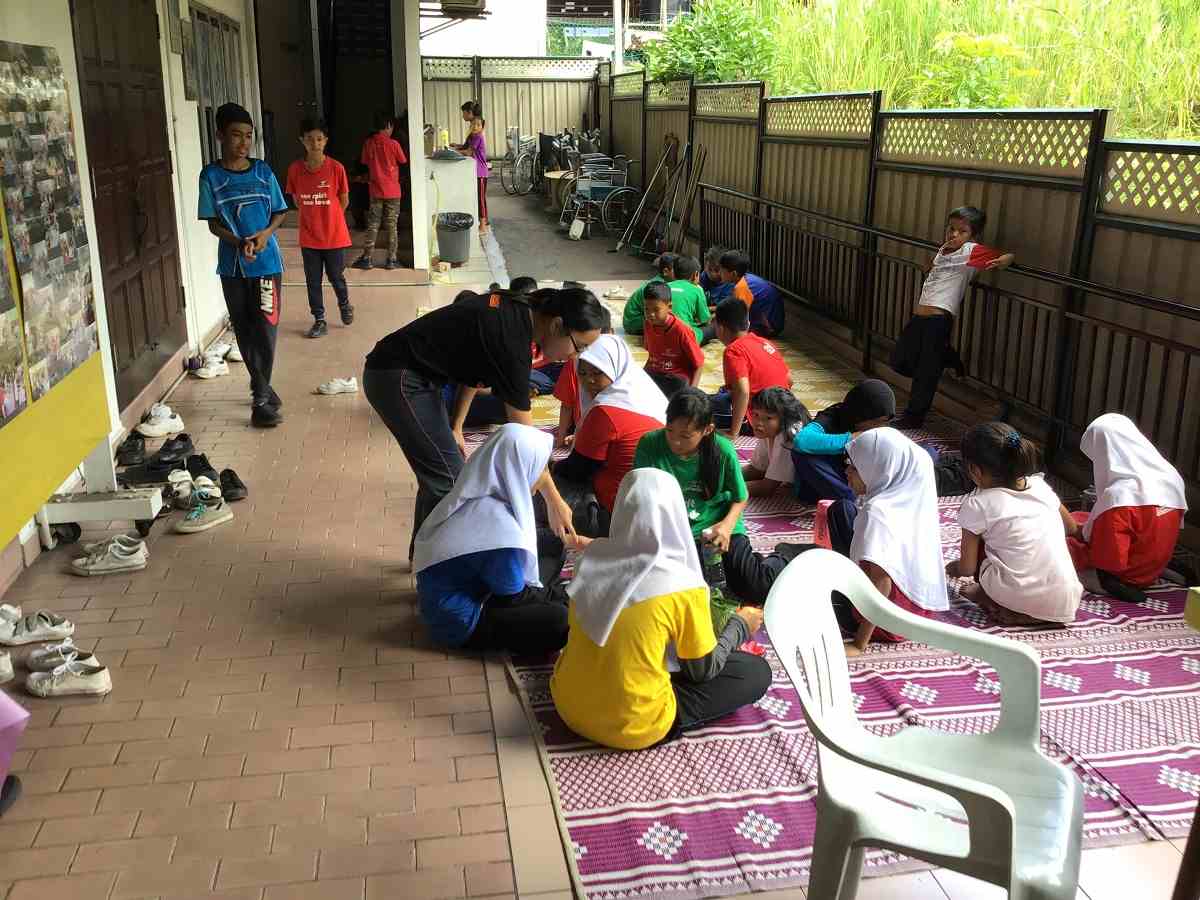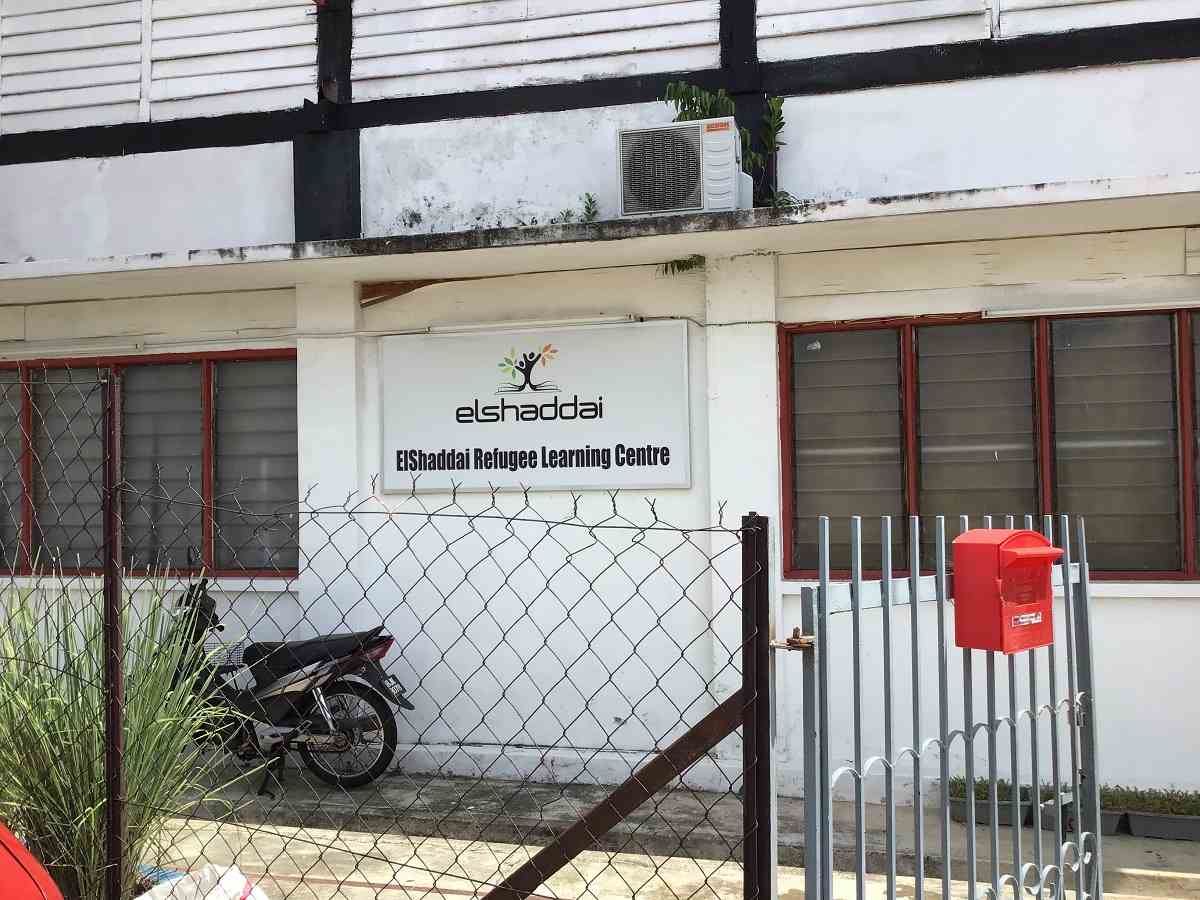CATCHING UP IN CLASS
By Christopher Quah
ElShaddai Centre was instituted to help refugees and asylum seekers in Malaysia through providing them education, primary healthcare, shelter as well as helping them to set up simple sustainable business enterprises.
ElShaddai began operation in 2008 as an implementing partner with UNHCR, Kuala Lumpur, to run a refugee school named ElShaddai Refugee Learning Centre (ERLC).

It started with only 22 children, but now there are over 600 students from eighteen nationalities, placed in classes ranging from Kindergarten to Form 2.
Yet not all students who attend the school have the same opportunity of education. Some come from family background which make it less than ideal for them to have proper education. By the time they arrive at the centre, they are way older than their peers.
As such ElShaddai has created a special program to help these students who are slower than their peers. Spearheading this project is Cassie Seow the accelerated learning program head teacher. Cassie explained that they have currently 32 students divided into 2 classes. The classes are conducted by two full time, and 3 part time teachers.

“We planned a 4 years of study course for these students as they are too old to go through the normal 6 years primary education program. They are over age. These children are mostly Stateless and with no documentation. We hope we can accelerate their primary education in 4 years and after that we hope they can further their study elsewhere, or get better jobs. The reason is because the chance of them going to primary education like normal kids is very low, and it won’t be suitable for them due to their age gap. After four years of study they would be around 14 year old. We don’t want to put them into a normal 6 years primary school program as this would just lengthen their journey,” she said.

She recalled that the accelerated learning classes started only in March 2019.
“I started teaching here in February 2019. These classes were in operation a month later. For the year 1 class we had 20 plus students enrolled, and in the year 2 class, we had 11 students enrolment. There are going to be more students coming. It’s almost the middle of the year and students are still coming, begging to be registered. This shows how in dire need for education is among the refugees,” she said.

She added that she is new in the field of education and find it very challenging and very thankful to her supportive colleagues that are helping her get through the challenge daily.
“One of the very experienced head teachers of the centre, Whye Ying who is running the main centre has help me a lot. She gave me good advice in running the classes. This is important to because I do face much student disciplinary issues. I would often ask Whye Yin g to teach me how to handle the parents, and the students,” she said.

She explained unlike normal students, these overaged students here face a very different situation altogether.
“Some of the parents do not understand the value of education and, when something happens at home, for even the slightest problem for example like there is no water at home, the parents would tell their children that they don’t have to go to school. That is their mind set. Sometimes, talking to these kind of parents are more difficult than handling children,” she explained.
She added that there is also issues of racism. Because they are from several different ethnic groups and, sometimes when they hear bad things about the other ethnic groups from elsewhere, they will tease each other for them.
“We always try to teach them the right values, and to expose their mind to what is right,” she added.
She also stated that for these refugees education is even more important than usual people.
“We to provide them a better opportunity for employment. If they are not in school, they will either sit at home the whole day doing nothing or are sent out to work by their caregivers. Many of them get exploited by their employer and there is also a high chance of getting married off young for the girls,” Cassie commented sadly.
“We have seen cases as young as 12 to 14 getting married off. There are mothers who are around 14 years old of age. By giving them opportunities in education, we are lessening such incidents. Further, if they have nothing to do at home at this young age, they might start hanging out on the streets and will land up doing the wrong things. It’s a negative cycle; that when they left idle doing nothing at home, they will start hanging out on the streets, then they do wrong things, and we start blaming them. We need to cut this negative cycle at the root,” she added.
She gave examples of the young guys and the girls who at such a young age are being exposed to the toils of an adult life.
“We have some of our students here who had stopped schooling to work. She recalled a 14 year old student from another location of the centre who is very smart. But unfortunately, the parents stopped his schooling as they had found a part time job for him already. We are trying our level best to lessen this kind of situation,” Cassie continued.

She believed that such behaviour happened due to the generational pattern that the parents inherited from their grandparents who are not educated themselves.
“They are very poor. Often times the father is the sole breadwinner. So, if the father met with a serious accident or being imprisoned, the family has no source of income, and no idea of what to do except to get their young children to find work. This is their set pattern for their son and for their daughter, to get her married as soon as possible. In their mind, getting their daughter married is better than starving her to death. So, they can focus on feeding their other younger children,’ she explained.
She added that by creating an awareness among the parents that education is important for their children is crucial in overcoming this problem. Through some effort and time many parents can finally see the importance of their kids to have a proper education,” she explained.
She added another issue facing the refugees’ community that is even if they have the required primary education it is still tough for the immigrants to find a proper institution to continue to next level of education.
“In Malaysia even with refugee card, the law does not allow refugees to work, to a normal government funded schools and health care. So a lot of parents don’t see the point of sending their children to school. But there are some good news, for the latest government policy is that state schools can accept stateless children. But many government funded schools are not implementing this as they are worried if these refugees can afford to pay the school fees or that they are afraid that by taking these kids will affect school in certain ways,” she said.
Yet she added that the new change in policy is the right way forward.
